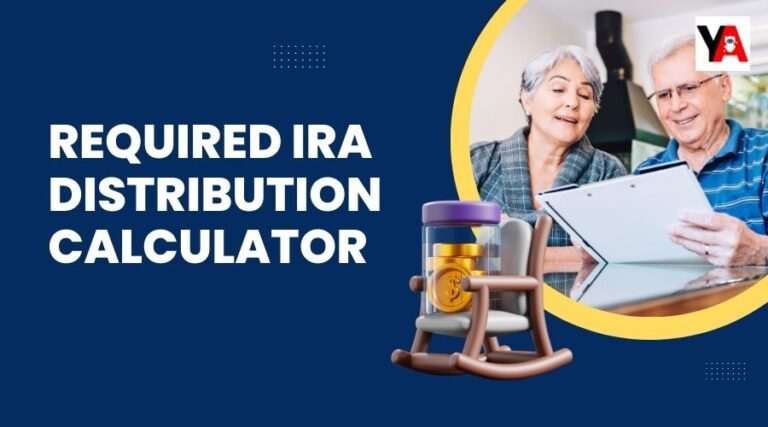Maintaining effective business communication appears to be difficult in today’s corporate environment, yet it is essential to success. Your trajectory can be greatly impacted by your ability to communicate effectively to influence stakeholders, create relationships, and convey ideas, regardless of your experience level or aspiration to become an entrepreneur. The article explores the significance of effective business communication, providing valuable perspectives and useful advice to enhance your influence within the corporate environment.
Table of Contents
ToggleUnderstanding the Significance of Effective Business Communication
1. Establishing Credibility
One of the primary benefits of effective communication is the establishment of credibility.
In a business setting, credibility is essential for gaining the trust of colleagues, superiors, and clients.
Clear and concise communication helps showcase your expertise, fostering a positive perception of your capabilities.
2. Building Strong Relationships
Effective business communication is a catalyst for building strong relationships.
Whether within your team, across departments, or with external partners, the ability to convey thoughts and ideas fosters collaboration and cooperation.
Strong relationships are the bedrock of successful ventures and collaborative initiatives.
3. Enhancing Decision-Making
Clarity in communication contributes to informed decision-making. When information is conveyed accurately and comprehensively, it empowers individuals and teams to make well-informed choices.
This, in turn, accelerates the decision-making process, a crucial factor in the fast-paced corporate environment.
Key Elements of Effective Business Communication
👉 Clear and Concise Messaging
- Eliminating Ambiguity: Effective communication requires clarity. Ambiguous messages can lead to confusion and misunderstandings. Ensure your messages are straightforward, eliminating any room for misinterpretation.
- Tailoring Communication to the Audience: Understanding your audience is paramount. Tailor your communication style to suit the preferences and expectations of your audience, whether it be a formal presentation to executives or an informal discussion with team members.
👉 Active Listening for Effective Business Communication
- Importance of Active Listening: Communication is a two-way street, and active listening is the counterpart to effective speaking. Actively engaging with others’ perspectives demonstrates respect and enhances mutual understanding.
- Verbal and Non-Verbal Cues: Pay attention not only to spoken words but also to non-verbal cues. Body language, tone, and facial expressions convey additional layers of meaning that can be crucial in deciphering the full message.
👉 Empathy in Communication
- Understanding Others’ Perspectives: Empathy plays a pivotal role in effective communication. Strive to understand the perspectives and emotions of others, fostering a collaborative and supportive work environment.
- Addressing Concerns and Feedback: Encourage open communication by addressing concerns and feedback constructively. Acknowledging and responding to the needs and opinions of your colleagues contributes to a culture of transparency and trust.
Leveraging Technology for Enhanced Communication
👉 Utilizing Communication Platforms
- Virtual Meetings and Collaboration Tools: In the era of remote work, leveraging virtual meeting platforms and collaboration tools is essential. Ensure you are well-versed in the use of technology to facilitate seamless communication, regardless of physical location.
- Email Etiquette and Clarity: Email remains a prominent mode of communication in the corporate world. Mastering email etiquette, including clarity, brevity, and professional tone, enhances your overall communication effectiveness.
👉 Embracing Multimedia Communication
- Visual Aids and Presentations
Incorporating visual aids and presentations can significantly enhance your communication impact. Well-designed slides, charts, and graphics can complement your message, making it more memorable and engaging. - Video Communication: The rise of video communication platforms offers a more personal and interactive way to connect with others. Embrace video calls for important discussions, fostering a sense of connection in virtual interactions.
Continuous Improvement in Communication Skills
✔️ Seeking Feedback
- Peer Feedback: Engage with your peers and colleagues to seek constructive feedback on your communication style. Valuable insights from others can help you identify areas for improvement and refine your approach.
- Professional Development Opportunities: Investing in professional development opportunities, such as communication workshops and training programs, can provide you with new tools and strategies to enhance your communication skills.
✔️ Regular Self-Reflection
Regularly reflect on past communication experiences. Consider what worked well and where improvements can be made. Continuous self-reflection is a key driver of personal and professional growth.
Final Words
Effective business communication is not just a skill; it is a strategic advantage in the corporate world. By establishing credibility, building strong relationships, and enhancing decision-making, individuals can elevate their impact and contribute to the overall success of their organizations. Embracing clear messaging, active listening, empathy, and leveraging technology are pivotal steps toward becoming a proficient communicator. Continuous improvement through seeking feedback and self-reflection ensures that your communication skills remain dynamic and adaptable in the ever-evolving business landscape. Elevate your effective business communication prowess, and you’ll find yourself making a lasting impact in the corporate world.
Frequently Asked Questions
Effective business communication is crucial as it establishes credibility, builds strong relationships, and enhances decision-making. It is the foundation for successful collaboration, informed decision-making, and fostering a positive work environment.
Improving communication skills involves clear and concise messaging, active listening, and empathy. Seeking feedback, participating in professional development opportunities, and reflecting on past communication experiences are effective strategies for continuous improvement.
Technology plays a vital role in modern business communication. Utilizing communication platforms, embracing multimedia communication, and mastering email etiquette contribute to seamless interactions, especially in remote or virtual work environments.
Tailoring your communication style involves understanding your audience’s preferences and expectations. Whether presenting to executives, collaborating with team members, or engaging with clients, adapting your approach to suit the specific context enhances the effectiveness of your communication.
Empathy is crucial in business communication as it fosters understanding and collaboration. By acknowledging and addressing the perspectives and emotions of others, you create a supportive work environment, strengthen relationships, and contribute to a positive corporate culture.
Using multimedia effectively involves incorporating visual aids, presentations, and video communication. Well-designed slides, charts, graphics, and video calls can complement your message, making it more engaging, memorable, and impactful.
Maintaining effective communication in a virtual work setting requires proficiency in virtual meeting platforms and collaboration tools. Clear and concise email communication, along with regular video calls, helps bridge the gap and ensures seamless interaction despite physical distances.
Receiving constructive feedback involves actively seeking input from peers and colleagues. Engage in open conversations about your communication style, participate in feedback sessions, and be receptive to suggestions for improvement.
Overcoming communication challenges involves addressing concerns and feedback openly. Encourage transparent communication, actively listen to team members, and foster a culture that values open dialogue. Regular team meetings and clear communication protocols can also help mitigate challenges.
Resources for further developing business communication skills include communication workshops, training programs, and online courses. Additionally, books, articles, and TED Talks on effective communication can provide valuable insights and practical tips for improvement.
Share




















